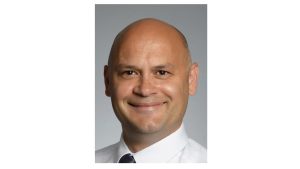
March 17, 2021
Xing Song
My research interests are in biomedical informatics, machine learning and statistical learning algorithms, data mining and knowledge discovery. My long-term research goal is to use novel computational algorithms to discover clinically meaningful knowledge from integrated healthcare databases and apply that knowledge to understand and improve population health. I joined University of Kansas Medical Center in September 2017 for postdoctoral training in medical informatics, where I developed various machine learning models for predicting chronic kidney disease onset in the diabetic population from electronic medical records (EMRs) and a robust risk factor identification framework based on EMRs and external registries. As a…

Oct. 23, 2020
Kate Trout
Large scale datasets collected by Information Technologies have continued to have an increasing role in nearly every sector of the economy over the past decade and will continue to do so in the next. Despite national goals of achieving interoperability of electronic health records (EHRs) and enhanced clinical decision making, health data remains fragmented. Dr. Trout’s research interest lies at the intersection of Public Health, Health Policy, and Health Informatics to develop novel, data-driven approaches to rural health issues. Dr. Trout is a health services researcher and epidemiologist with research focusing on the utilization of Health Information Technologies (HITs) such…

Oct. 20, 2020
Iris Zachary
Iris Zachary is an Associate Research Professor with a focus on cancer informatics. She received her M.S. and Ph.D. degrees in Informatics at the University of Missouri. She has collaborated with nationally recognized leaders in cancer research and has presented her research at regional, national and international meetings of, among others, the International Agency for Research on Cancer (IARC), the National Association of Central Cancer Registries (NAACCR), the World Cancer Congress (WCC), the American Medical Informatics Association (AMIA) and the American Public Health Association (APHA). Dr. Zachary’s cancer informatics research extends precision cancer surveillance, cancer informatics, and public health informatics.

Oct. 14, 2020
Jussuf T. Kaifi
As a surgeon scientist, Chief of the Division for Cardiothoracic Surgery and co-Director for Clinical Trials at Ellis Fischel Cancer Center at the University of Missouri, my overarching goal is to translate basic science discovery into improved clinical care for patients suffering from lung cancer. I have spent my career studying solid cancers using cancer mouse models and liquid biomarkers. My efforts in this field of translational cancer research have resulted in >125 peer-reviewed publications. I initiated investigator-initiated observational clinical trials involving biospecimens at the University of Missouri (NCT02838836) and the Truman VA (NCT03551951) that led to several recent publications…

May 22, 2020
Zezong Gu
Research in the Zezong Gu laboratory focuses on the studies of traumatic brain injury (TBI) and cerebral ischemia. This includes associated aging-related neurodegenerative diseases in animal models for mechanistic and translational investigations in aiding for the development of biomarkers, preventive and therapeutic strategies. The Gu laboratory uses multi‐disciplinary approaches and paradigms to conduct translational research. The Gu laboratory toolbox includes cell‐free protein interaction, primary neuron cultures including biofidelic 3D cultures, and in vivo rodent models of neurodegenerative diseases, as well as neurobehavioral assessment, digital pathology and quantitative proteomic analyses and bioinformatics. Ultimately, the endeavor of Dr. Gu’s studies supported with…

May 4, 2020
Praveen Rao
Dr. Praveen Rao is a tenured associate professor in the Department of Electrical Engineering & Computer Science at the University of Missouri (MU). His research interests are in the areas of big data management, data science, health informatics, and cybersecurity. He directs the Scalable Data Science (SDS) Lab at MU. His research, teaching, and outreach activities have been supported by the National Science Foundation (NSF), the National Endowment for the Humanities (NEH), the National Institutes of Health (NIH), Centers for Disease Control and Prevention (CDC), Air Force Research Lab (AFRL), the University of Missouri System (Tier 1 grant, Tier 3…

Oct. 30, 2019
Blaine Reeder
Dr. Reeder received his PhD in Biomedical and Health Informatics from the University of Washington School of Medicine in 2010, followed by a postdoctoral fellowship at the University of Washington School of Medicine. Prior to his academic career, he was a software engineer and technology consulting entrepreneur.

Oct. 16, 2019
Steven Van-Doren
Steven Van Doren earned a Ph.D. in Biophysics at the University of Illinois in 1991. He trained further at the University of Michigan in biophysical NMR, a computation-intensive experimental field. His laboratory strives to enrich molecular medicine with biophysical insight. His group uses NMR to characterize biomolecular recognition, especially dynamic interactions of proteins. His group developed TREND software packages for resolving changes occurring across series of NMR spectra, for use in molecular recognition and drug discovery. They are currently developing the TRENDimaging for resolving and correcting motions in dynamic magnetic resonance imaging.

July 29, 2019
Xiu-Feng (Henry) Wan
Dr. Wan’s long-term career goals are to understand how zoonotic pathogens (especially influenza A viruses) emerge and re-emerge at the animal-human interface and to improve the effectiveness of the influenza vaccines in disease prevention and control by developing and applying systems biology based translational approaches. Translational systems biology is an integrated, multi-scale, evidence-based approach that combines laboratory, clinical and computational methods with an explicit goal of developing effective means of control of biological processes for improving human health and rapid clinical application.